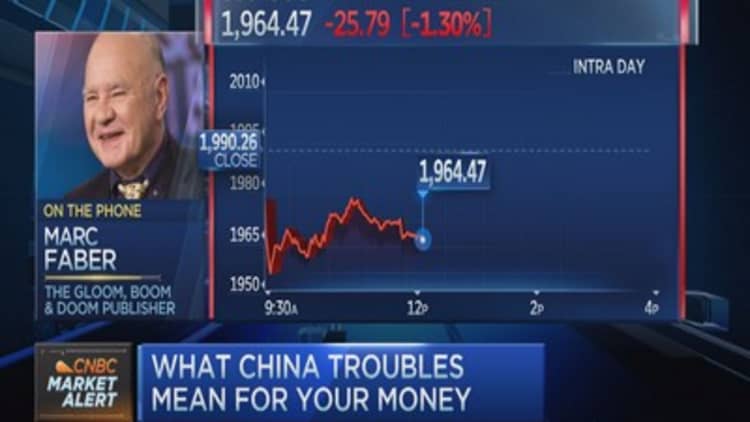
China has become a scapegoat for U.S. stock weakness, but equities will struggle to rise this year because of the American economy, widely followed bear Marc Faber said Thursday.
"The U.S. economy is weakening and weakening much more than is perceived," the Gloom, Boom & Doom Report publisher told CNBC's "Fast Money: Halftime Report."
Stark drops in Chinese stocks triggered trading halts twice this week, fueling concerns about a slowdown there and contributing to selling around the globe. But China is not the reason U.S. stocks "are unlikely to make new highs this year," Faber contended.
"It has nothing to do at all with China," he said.
Faber said that the U.S. economy is "slowly down significantly." He declined to say whether the U.S. would fall into a recession, but cited weakness in sectors like manufacturing.
He noted that rises in asset prices — from property to stocks and bonds — have fueled consumption, but some of those classes have recently struggled for gains.
Despite Faber's pessimism, some data points have shown reasons for hope in the U.S. economy. Private companies created 257,000 jobs in December, well ahead of expectations for 192,000, according to data released this week. Market watchers will receive a crucial indicator with Friday's nonfarm payrolls report.
In the current environment, Faber believes government bonds make an attractive play. While the U.S. 10-year Treasury note yield of about 2.18 percent will not "make you rich," it offers a boost from the low yield of bonds in Germany, Japan and Switzerland, he contended.




